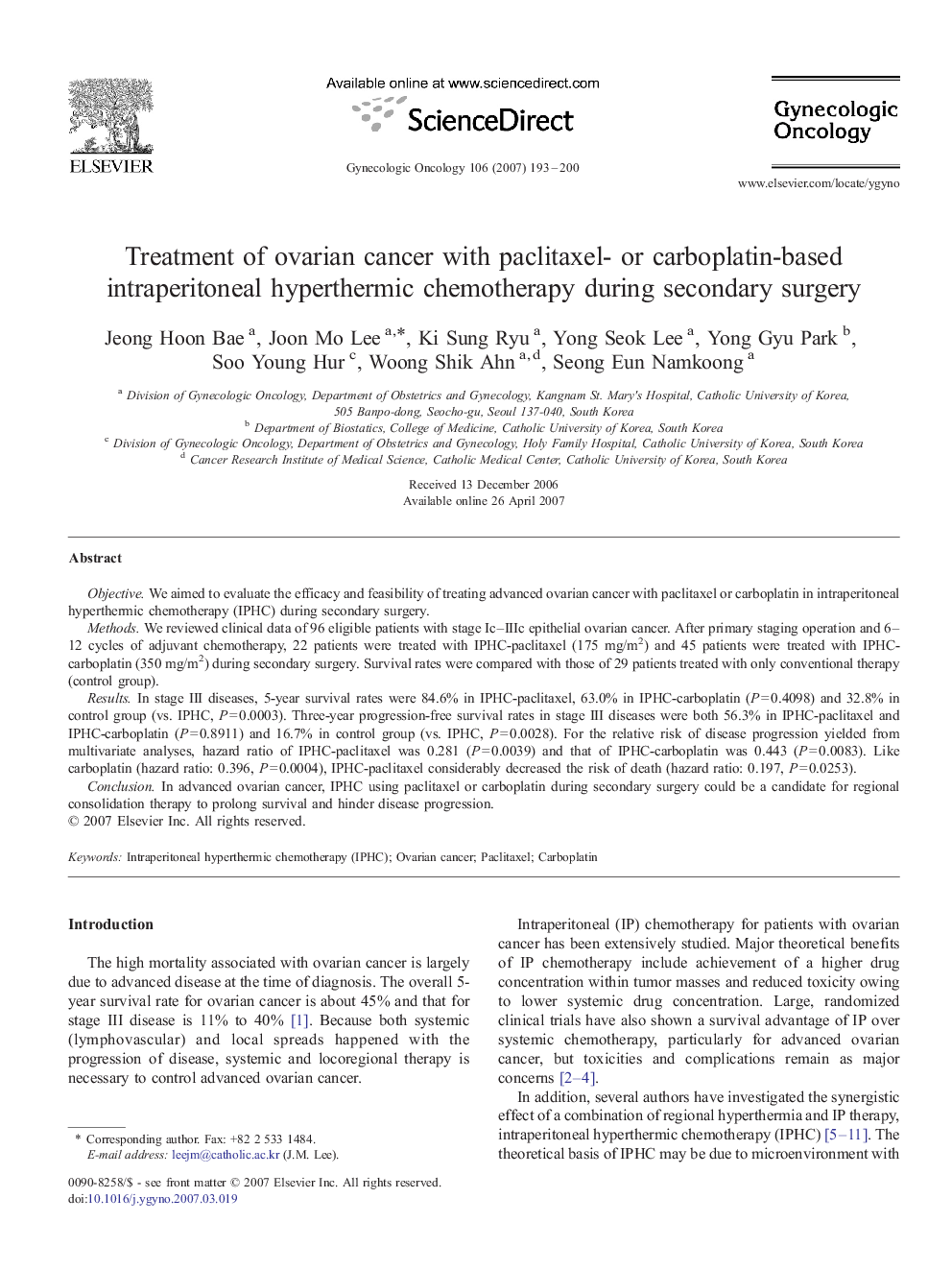| Article ID | Journal | Published Year | Pages | File Type |
|---|---|---|---|---|
| 3947589 | Gynecologic Oncology | 2007 | 8 Pages |
ObjectiveWe aimed to evaluate the efficacy and feasibility of treating advanced ovarian cancer with paclitaxel or carboplatin in intraperitoneal hyperthermic chemotherapy (IPHC) during secondary surgery.MethodsWe reviewed clinical data of 96 eligible patients with stage Ic–IIIc epithelial ovarian cancer. After primary staging operation and 6–12 cycles of adjuvant chemotherapy, 22 patients were treated with IPHC-paclitaxel (175 mg/m2) and 45 patients were treated with IPHC-carboplatin (350 mg/m2) during secondary surgery. Survival rates were compared with those of 29 patients treated with only conventional therapy (control group).ResultsIn stage III diseases, 5-year survival rates were 84.6% in IPHC-paclitaxel, 63.0% in IPHC-carboplatin (P = 0.4098) and 32.8% in control group (vs. IPHC, P = 0.0003). Three-year progression-free survival rates in stage III diseases were both 56.3% in IPHC-paclitaxel and IPHC-carboplatin (P = 0.8911) and 16.7% in control group (vs. IPHC, P = 0.0028). For the relative risk of disease progression yielded from multivariate analyses, hazard ratio of IPHC-paclitaxel was 0.281 (P = 0.0039) and that of IPHC-carboplatin was 0.443 (P = 0.0083). Like carboplatin (hazard ratio: 0.396, P = 0.0004), IPHC-paclitaxel considerably decreased the risk of death (hazard ratio: 0.197, P = 0.0253).ConclusionIn advanced ovarian cancer, IPHC using paclitaxel or carboplatin during secondary surgery could be a candidate for regional consolidation therapy to prolong survival and hinder disease progression.
